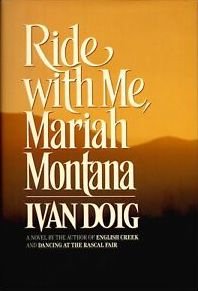Pixie Dust
One of our homestead foundation fundraising committee members uses a phrase that I love. We were discussing, in our meeting last night, the fact that we have to limit registration for our kid activities because we don’t have enough adult helpers. She framed it as an opportunity to counter the belief that “Someone sprinkles pixie dust and things just happen.” We need to let parents know that if we had more adult helpers (parents), we could open up our kid activities to more children.
The pixie dust analogy applies to many situations these days. People expect that someone else will sprinkle pixie dust and poof!—things will happen.
Honestly, I don’t think most people understand that historically, life was hard. Even with all we do here at our place, we only get a small taste of that. If my crops fail, I can get food from the grocery store. If the husband forgets to load the wood boiler in the morning—or worse, doesn’t stack enough wood in the fall—our backup propane heat kicks in. A hundred years ago, a diagnosis of leukemia would have been a death sentence. Our lives are not difficult, all things considered.
Resilience has been lost, individually and socially. By removing obstacles and impediments from people’s lives, we’ve created a culture where people expect to be given everything with little to no effort. And that expectation causes many people to fold the moment things become tough.
I’ll fall off this soapbox soon, I promise.
***************
Montana PBS is airing a documentary right now on author Ivan Doig. (I believe it’s only available through PBS Passport, though, for PBS members.) I watched it last week. Ivan Doig’s books are near and dear to my heart. I was first introduced to them by my friend Kathy, back when we still lived in Pennsylvania. Kathy was reading Dancing at the Rascal Fair, the second book in Doig’s “Montana Trilogy.” (English Creek is the first, set in the 1930s. Rascal Fair is set in the late 1800s.) If you want a glimpse of what life as a sheepherder in northern Montana in the 1800s was like—and it was not for the faint of heart—Dancing at the Rascal Fair provides an excellent description. Doig’s trilogy is somewhat autobiographical, as he was raised by his sheepherding father and his grandmother in the part of Montana where the story takes place. To say that their way of life was tough is an understatement.
The third book in the trilogy is also special, and takes place in the 1980s:
DD#1 is named after one of the central characters, Mariah McCaskill. We chose that name while we were still back east—she was born in Baltimore—and practically no one had heard of it other than in association with the song “They Call the Wind Mariah.” When we moved out here, it seemed like every third little girl was named Mariah.
[Fun fact: The pass from Glacier Park over to the east side of the mountains is called Maria’s Pass, but Maria is pronounced like Mariah.]
Ivan Doig did a book signing in Kalispell some years ago and was kind enough to inscribe a copy of Ride With Me, Mariah Montana for DD#1. All together, he authored sixteen books before his death from multiple myeloma in 2015. If you can access the PBS documentary, I highly recommend it.
***************
I might be able to sneak in some sewing this morning—more class samples—before going out to the greenhouse this afternoon. I ought to start pruning fruit trees, too, but it is still hard to get around the yard with all the snow.
I sent an e-mail to the company in Seattle that sells industrial sewing machines. They have several used machines that would fit my needs and budget, so I will try to arrange a shopping trip there some time in the next couple of months. And the husband ordered a new piece of equipment this past weekend. We can’t take delivery until the fall, but at least the order is in.

